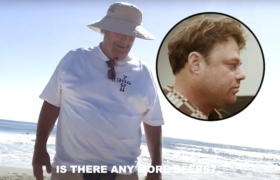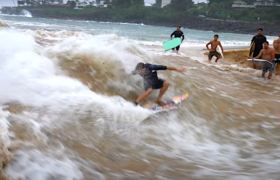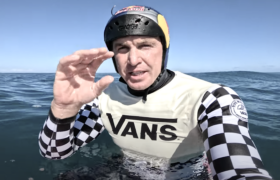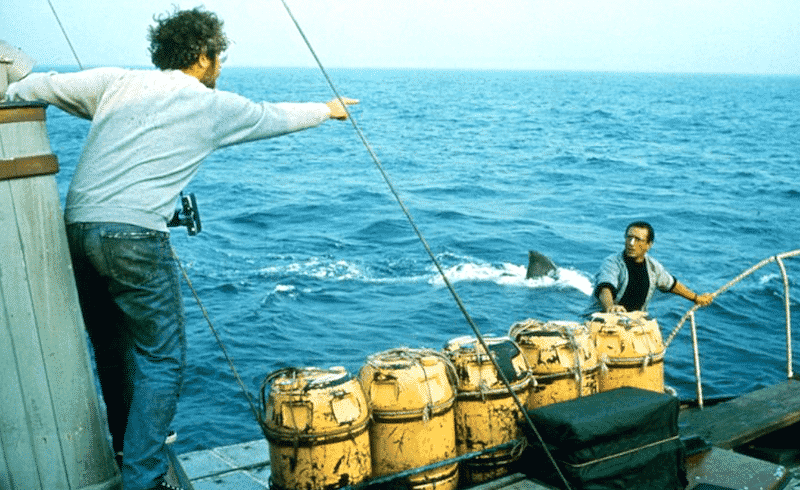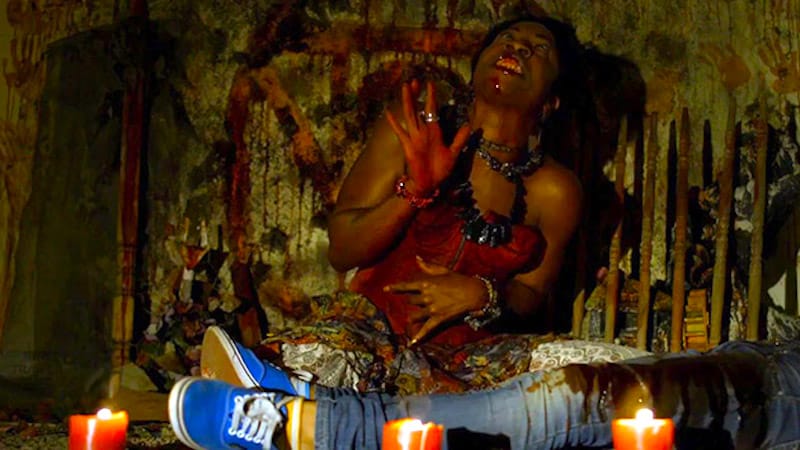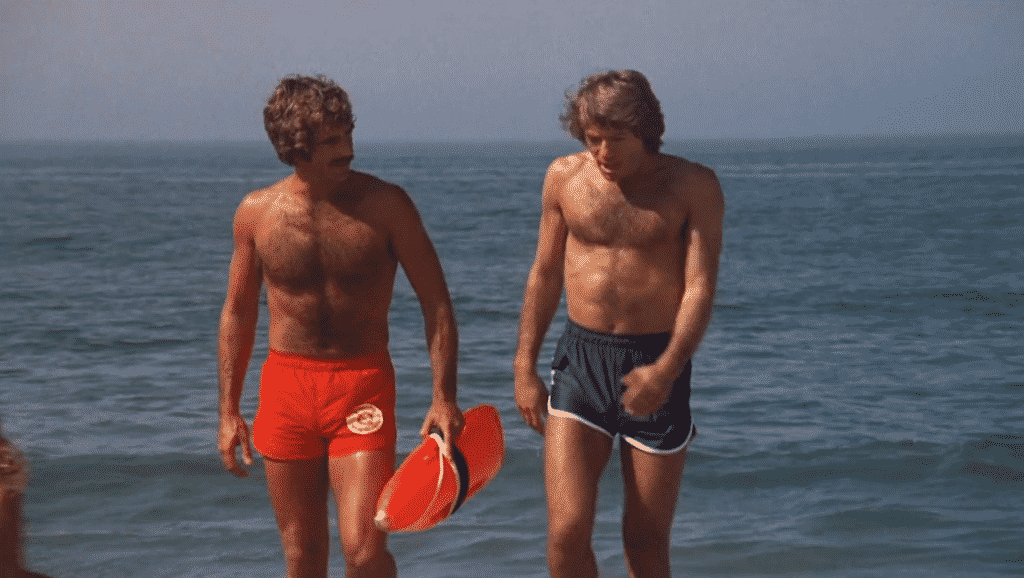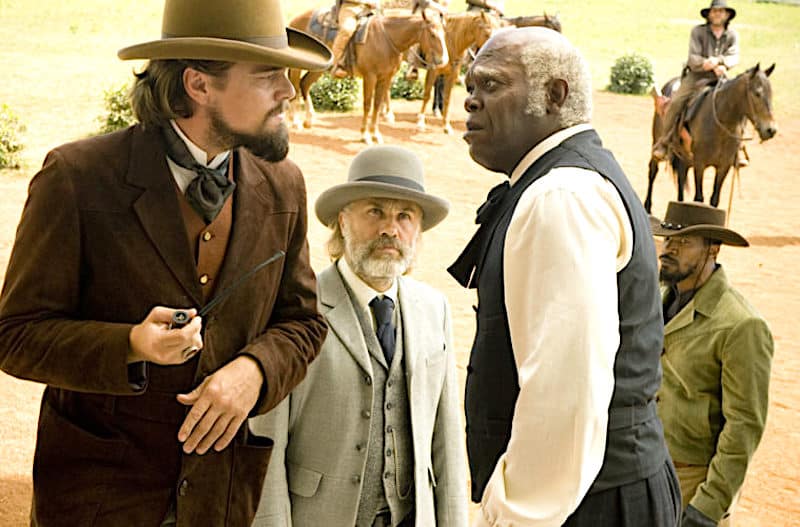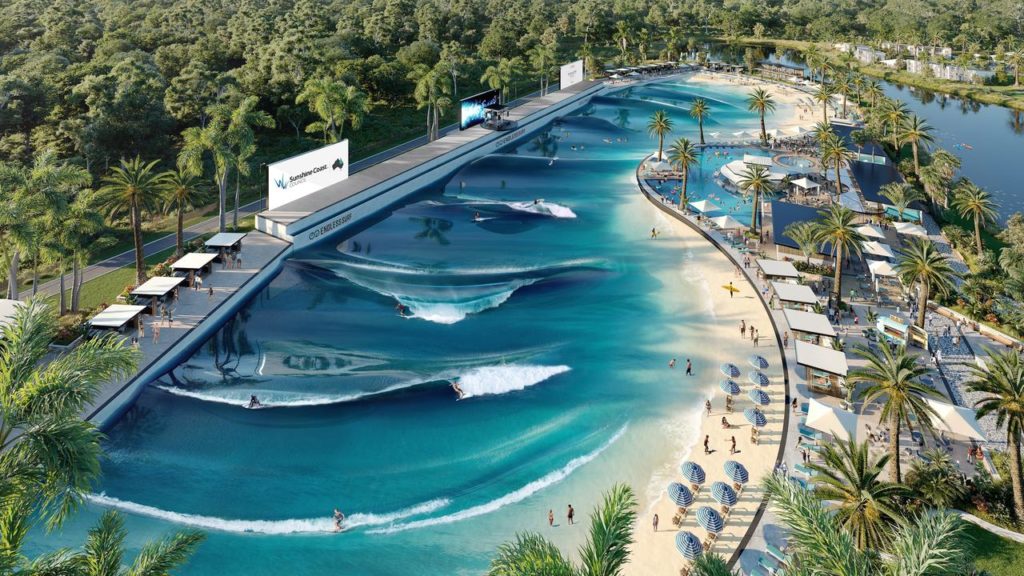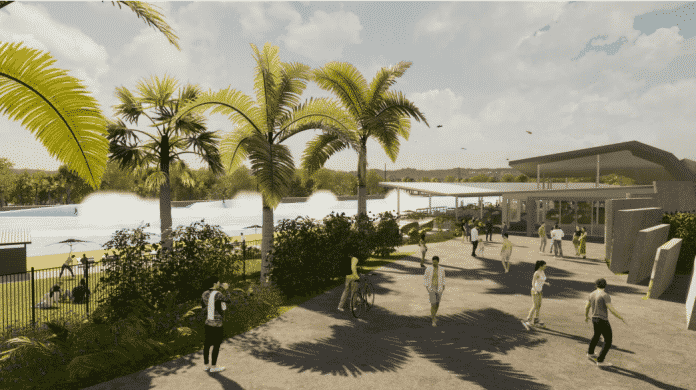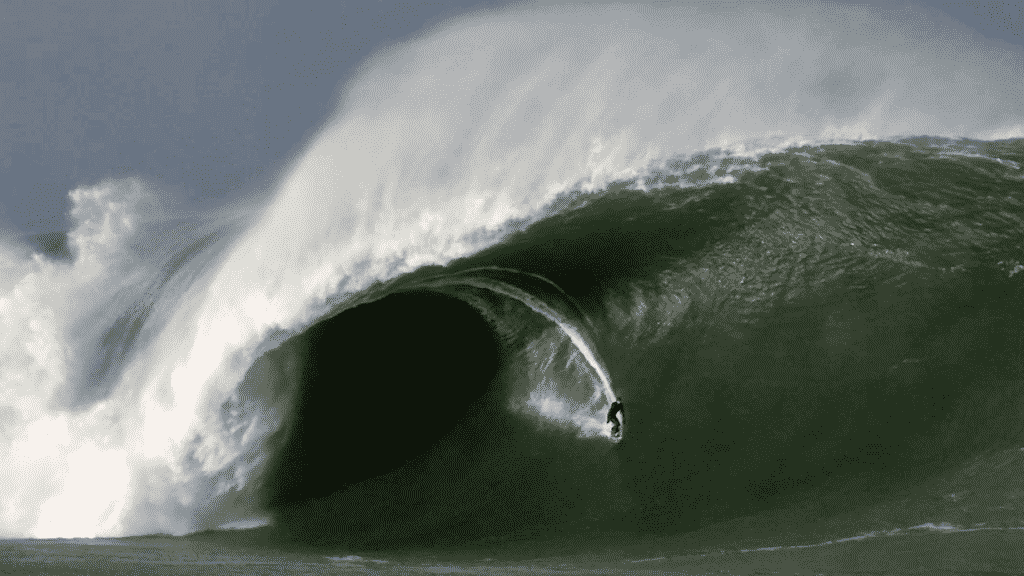“We’re to blame for the surprising boom in shark bites…”
The world’s pre-eminent surf journalist Sean Doherty, a man who will crumble bones and drink blood in the pursuit of a story, has come out swinging at tabloid current affairs show 60 Minutes for its child-like take on Australia’s Great White Crisis.
In episode 39, Close Encounters, which comes two weeks after a Perth man swimming fifty feet from shore was disappeared by a Great White, we get the usual tabloid arc on shark attacks, a little shock and horror (“What would you do if you swam into Jaws,”) followed by resolution and reassurance – technology will save us along with what might loosely be called an expert on the matter saying, well, more people in the water ergo more attacks.
Nothing to see here, move on etc.
Doherty, who is the author of the definitive MP: the Life of Michael Peterson, My Brother’s Keeper: the official Bra Boy’s story, once voted the World’s Best Surf Reporter, who owns print magazine Surfing World and who helped steer public opinion against new oil drilling in Australian waters, was savage in his attack.
When 60 Minutes tweeted, “Dr Nathan Hart, a world-leading animal neurologist, puts the increase in shark encounters down to one simple fact: humans are sharks are mixing more than ever before,
Doherty responded,
“One simple fact? More people? All recent fatalities have been victims of White shark attack. White sharks have been protected in Australian waters for 20 years. Breeding cycle 12-15. Your reporter just nodded his way blithely through this claim.”
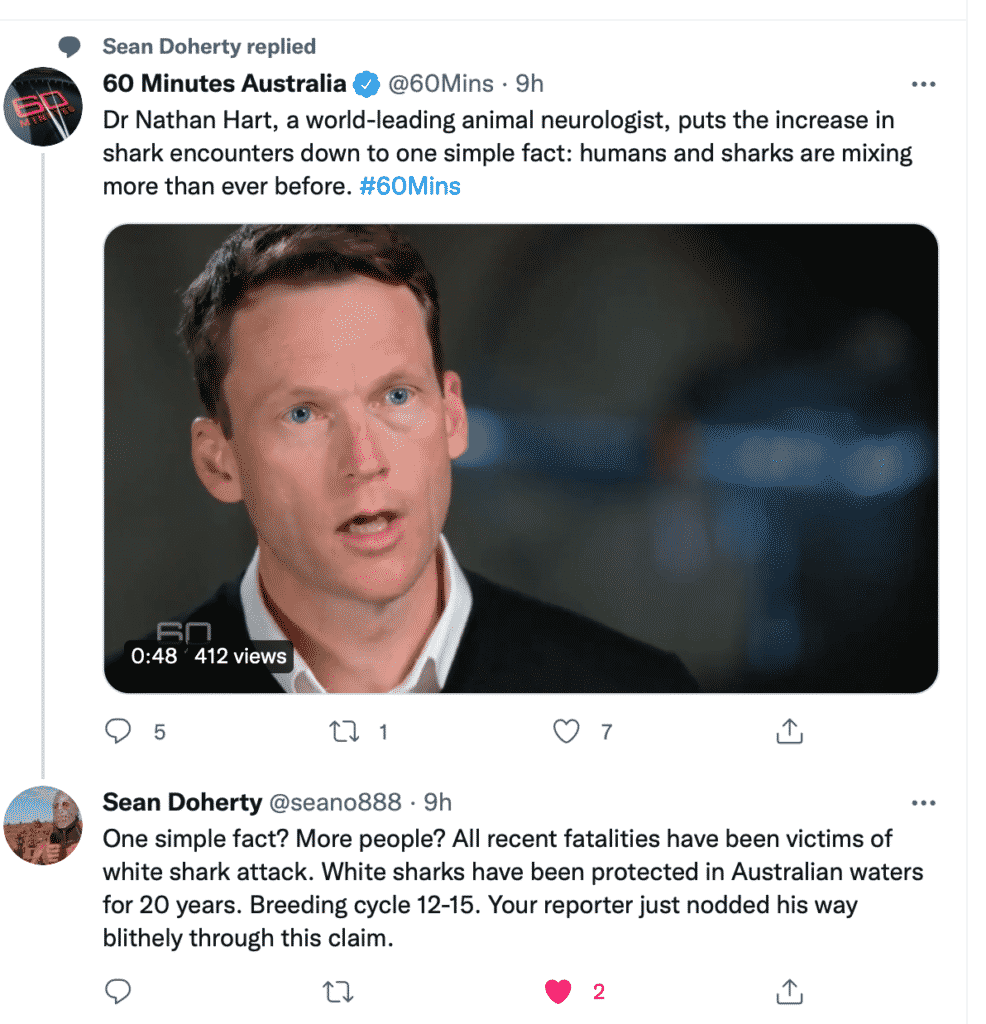
Doherty knows.
He grew up surfing the NSW mid-north Coast and has seen that dreamy lil stretch of surf heaven turn into a superhighway for Great Whites.
Growing up in Forster and surfing during the ‘80s and ‘90s, I never really encountered sharks, not whites anyway. We’d catch whalers outside while fishing, but you never saw sharks while surfing. This was the heyday of the Tuncurry Bar, half a mile out to sea off Tuncurry Beach at the mouth of Wallis Lake, one of the best right-handers on the east coast. When the Bar broke, nobody ever thought twice about sharks. They were never front of mind.
But that’s changed in recent years. With the white shark protected since 1999, and the primary east coast breeding ground just down the coast, they’re regular visitors. When the NSW Department of Primary Industries began their trial of Smart drum-lines in the area back in 2017, they immediately confirmed what many local surfers already knew. The DPI picked up 65 white sharks in six months between the town beaches of Tuncurry and Burgess, most of them juveniles between two and three metres.
Obvious questions.
Will the conversation, as it’s called, turn specifically to Great Whites or stick to “sharks” thus muddying the debate with platitudes like more sharks are killed by humans than vice-versa, cue photos of sharks being finned, and when will any of the supposed experts, none of whom appear to surf, arrive at a number for the current population of Great Whites?
And, to the point of more people surfing ergo more attacks, I’d suggest the numbers of swimmers off Perth has dwindled to almost zero, most of ’em swimming so close to shore they almost hit the sand with their arm strokes, and at known Great White haunts surfer numbers are down dramatically.
Or I’m wrong.
Tell me.
